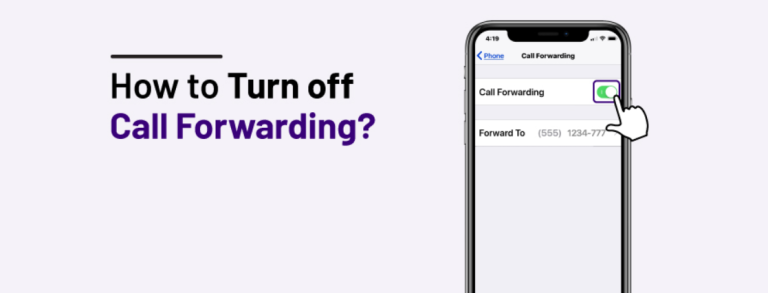Medicare provides essential health insurance coverage for millions of Americans aged 65 and older, as well as certain younger individuals with disabilities. While Medicare covers a significant portion of medical expenses, it does not cover everything. This is where Medigap insurance, also known as Medicare Supplement Insurance, comes into play. Medigap plans help fill the gaps in Original Medicare coverage, such as deductibles, copayments, and coinsurance.
Aetna, a well-established and reputable insurance provider, offers a range of Medigap plans to help Medicare beneficiaries manage their out-of-pocket healthcare costs. In this comprehensive article, we will explore the ins and outs of Aetna Medigap insurance, including the different plans available, their benefits, eligibility requirements, enrollment process, and cost considerations.
Understanding Medigap Insurance
Before delving into Aetna’s specific Medigap offerings, it’s crucial to grasp the fundamentals of Medigap insurance itself.
What is Medigap Insurance?
Medigap insurance is private health insurance designed to supplement Original Medicare (Parts A and B). It helps pay for some of the out-of-pocket costs that Original Medicare doesn’t cover, such as:
- Part A Deductible: The amount you pay for each benefit period for inpatient hospital care.
- Part B Deductible: The annual amount you pay before Medicare starts covering Part B costs.
- Part B Coinsurance: The 20% of Medicare-approved costs you typically pay for Part B services.
- Part B Excess Charges: The additional amount some doctors and other healthcare providers may charge above Medicare-approved amounts.
Key Features of Medigap Plans:
- Standardized Plans: Medigap plans are standardized by the federal government, meaning that plans with the same letter designation offer the same basic benefits, regardless of the insurance company selling them.
- Coverage for Specific Gaps: Each Medigap plan covers a specific set of gaps in Original Medicare coverage.
- Guaranteed Renewable: Medigap policies are generally guaranteed renewable, meaning the insurance company cannot cancel your coverage as long as you pay your premiums on time.
- Portable: You can keep your Medigap plan even if you move to a different state.
- No Network Restrictions: With a Medigap plan, you can see any doctor or healthcare provider who accepts Medicare.
Aetna Medigap Insurance Plans
Aetna offers a variety of Medigap plans to suit the diverse needs and budgets of Medicare beneficiaries. Let’s take a closer look at some of the most popular Aetna Medigap plans:
Plan F:
- Comprehensive Coverage: Plan F offers the most comprehensive coverage among all Medigap plans, covering all of the gaps in Original Medicare listed above.
- High-Deductible Option: Aetna also offers a high-deductible version of Plan F, which has a lower monthly premium but requires you to pay a higher deductible before the plan’s benefits kick in.
- No Longer Available to New Enrollees: It’s important to note that Plan F is no longer available to people new to Medicare as of January 1, 2020. However, if you were already enrolled in Plan F before that date, you can keep your plan.
Plan G:
- Almost as Comprehensive as Plan F: Plan G offers nearly the same coverage as Plan F, except that it doesn’t cover the Part B deductible.
- Popular Choice: Plan G is a popular choice for people new to Medicare because it offers extensive coverage at a more affordable premium than Plan F.
Plan N:
- Cost-Effective Option: Plan N is a cost-effective option that offers good coverage with some cost-sharing features.
- Copayments and Coinsurance: With Plan N, you may have to pay copayments for office visits and emergency room visits, as well as coinsurance for some Part B services.
Other Aetna Medigap Plans:
In addition to the plans mentioned above, Aetna also offers other Medigap plans, such as Plans A, B, C, D, K, and L. Each plan has its unique set of benefits and cost-sharing features. It’s important to compare the different plans carefully to find the one that best meets your needs and budget.
Benefits of Aetna Medigap Insurance
Choosing Aetna Medigap insurance can provide several significant benefits to Medicare beneficiaries:
- Predictable Costs: Medigap plans help you budget for your healthcare expenses by covering many of the out-of-pocket costs that Original Medicare doesn’t.
- Financial Protection: Medigap insurance can protect you from unexpected medical bills and help you avoid financial hardship due to high healthcare costs.
- Freedom of Choice: With a Medigap plan, you have the freedom to see any doctor or healthcare provider who accepts Medicare, without worrying about network restrictions.
- Peace of Mind: Knowing that you have comprehensive coverage for your healthcare needs can provide peace of mind and reduce stress.
Eligibility and Enrollment for Aetna Medigap Insurance
To be eligible for Aetna Medigap insurance, you must meet certain requirements:
- Age and Medicare Enrollment: You must be 65 or older and enrolled in both Medicare Part A and Part B.
- State Availability: Aetna Medigap plans are not available in all states. You’ll need to check if Aetna offers Medigap plans in your area.
Medigap Open Enrollment Period:
The best time to enroll in a Medigap plan is during your Medigap Open Enrollment Period. This six-month period starts on the first day of the month you turn 65 and are enrolled in Medicare Part B. During this period, you have the guaranteed right to enroll in any Medigap plan available in your area, regardless of your health condition.
Enrollment Outside the Open Enrollment Period:
If you miss your Medigap Open Enrollment Period, you may still be able to enroll in a Medigap plan, but you may have to undergo medical underwriting. This means the insurance company may review your health history and decide whether to offer you coverage and at what premium rate.
How to Enroll in Aetna Medigap Insurance
You can enroll in an Aetna Medigap plan in several ways:
- Online: You can enroll online through Aetna’s website or through a licensed insurance agent’s website.
- Phone: You can call Aetna directly or contact a licensed insurance agent to enroll over the phone.
- Mail: You can request an enrollment application by mail and complete it and send it back to Aetna.
Cost of Aetna Medigap Insurance
The cost of Aetna Medigap insurance varies depending on several factors, including:
- Plan Type: Different Medigap plans have different premium rates. Generally, plans with more comprehensive coverage have higher premiums.
- Age: Your age can affect your premium rate. Older individuals may pay higher premiums than younger individuals.
- Gender: In some states, insurance companies can charge different premium rates based on gender.
- Location: Premium rates can also vary depending on where you live.
- Tobacco Use: Some insurance companies may charge higher premiums for tobacco users.
It’s important to compare quotes from different insurance companies to find the best rate for the coverage you need.
Tips for Choosing the Right Aetna Medigap Plan
With so many Medigap plans available, choosing the right one can be overwhelming. Here are some tips to help you make an informed decision:
- Assess Your Needs: Consider your health condition, healthcare needs, and budget when choosing a plan.
- Compare Plans: Carefully compare the benefits and costs of different Aetna Medigap plans.
- Consider Future Needs: Think about how your healthcare needs may change in the future and choose a plan that can accommodate those changes.
- Seek Professional Advice: If you’re unsure which plan is right for you, consult with a licensed insurance agent who specializes in Medigap insurance.
Conclusion
Aetna Medigap insurance can be a valuable addition to your Medicare coverage, providing comprehensive protection against out-of-pocket healthcare costs. By understanding the different Aetna Medigap plans available, their benefits, eligibility requirements, enrollment process, and cost considerations, you can make an informed decision and choose the plan that best suits your needs and budget. Remember, Medigap insurance can provide peace of mind and financial security, allowing you to focus on enjoying your retirement years without worrying about unexpected medical bills.
Read More: Can You Use HSA for Adjustable Bed?






